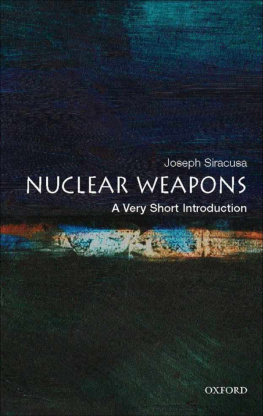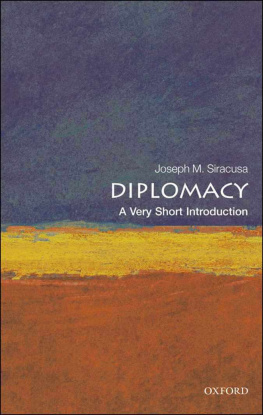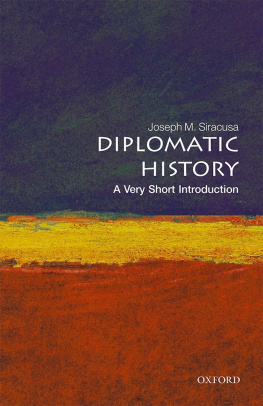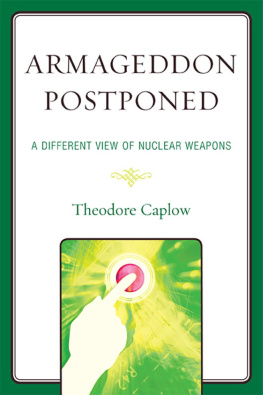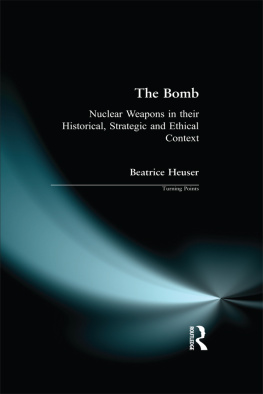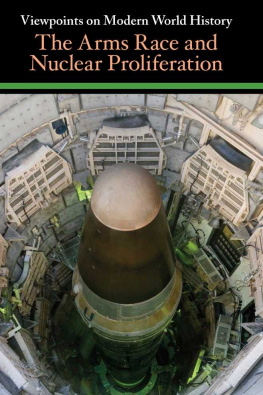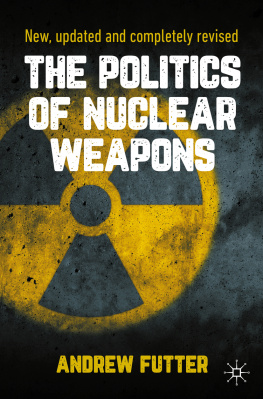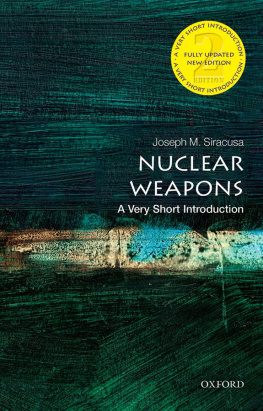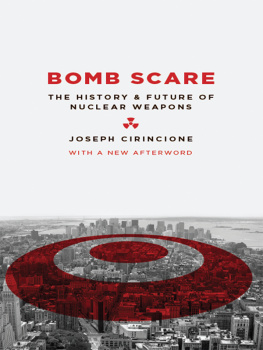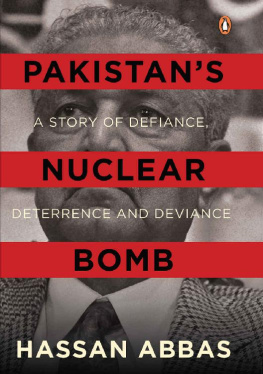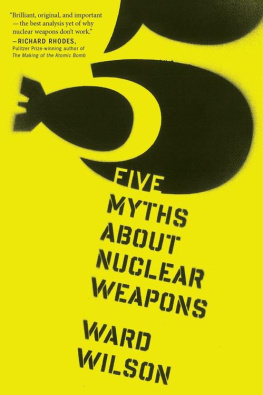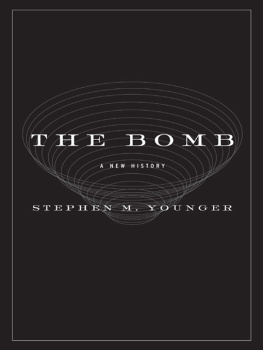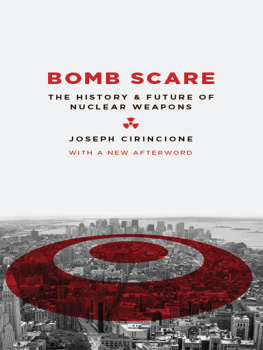Joseph M. Siracusa - Nuclear Weapons: A Very Short Introduction
Here you can read online Joseph M. Siracusa - Nuclear Weapons: A Very Short Introduction full text of the book (entire story) in english for free. Download pdf and epub, get meaning, cover and reviews about this ebook. City: New York, year: 2008, publisher: Oxford University Press, genre: Politics. Description of the work, (preface) as well as reviews are available. Best literature library LitArk.com created for fans of good reading and offers a wide selection of genres:
Romance novel
Science fiction
Adventure
Detective
Science
History
Home and family
Prose
Art
Politics
Computer
Non-fiction
Religion
Business
Children
Humor
Choose a favorite category and find really read worthwhile books. Enjoy immersion in the world of imagination, feel the emotions of the characters or learn something new for yourself, make an fascinating discovery.
- Book:Nuclear Weapons: A Very Short Introduction
- Author:
- Publisher:Oxford University Press
- Genre:
- Year:2008
- City:New York
- Rating:3 / 5
- Favourites:Add to favourites
- Your mark:
Nuclear Weapons: A Very Short Introduction: summary, description and annotation
We offer to read an annotation, description, summary or preface (depends on what the author of the book "Nuclear Weapons: A Very Short Introduction" wrote himself). If you haven't found the necessary information about the book — write in the comments, we will try to find it.
Despite not having been used in anger since Hiroshima and Nagasaki, nuclear weapons are still the biggest threat that faces us in the 21st century. Indeed, for all the effort to reduce nuclear stockpiles to zero and to keep other nations (such as Iran) from developing nuclear capability, it seems that the Bomb is here to stay. In this gripping Very Short Introduction, Joseph M. Siracusa, an internationally respected authority on nuclear arms, provides a comprehensive, accessible, and at times chilling overview of the most deadly weapon ever invented. Siracusa explains the history of the arms race and the politics of the bomb, ranging from the technology of nuclear weapons, to the revolutionary implications of the H-bomb and the politics of nuclear deterrence. The issues are set against a backdrop of the changing international landscape, from the early days of development, through the Cold War, to the present-day controversy over George W. Bushs National Missile Defense, and the role of nuclear weapons in an Age of Terror. Providing an accessible and eye-opening backdrop to one of the most unsettling aspects of the modern world, this compact introduction is must reading.
About the Series: Combining authority with wit, accessibility, and style, Very Short Introductions offer an introduction to some of lifes most interesting topics. Written by experts for the newcomer, they demonstrate the finest contemporary thinking about the central problems and issues in hundreds of key topics, from philosophy to Freud, quantum theory to Islam.
**
Joseph M. Siracusa: author's other books
Who wrote Nuclear Weapons: A Very Short Introduction? Find out the surname, the name of the author of the book and a list of all author's works by series.

